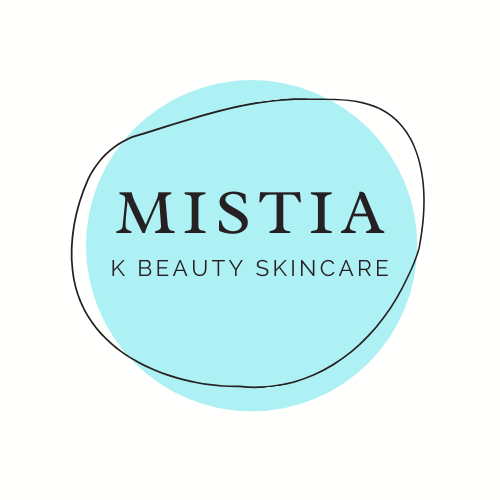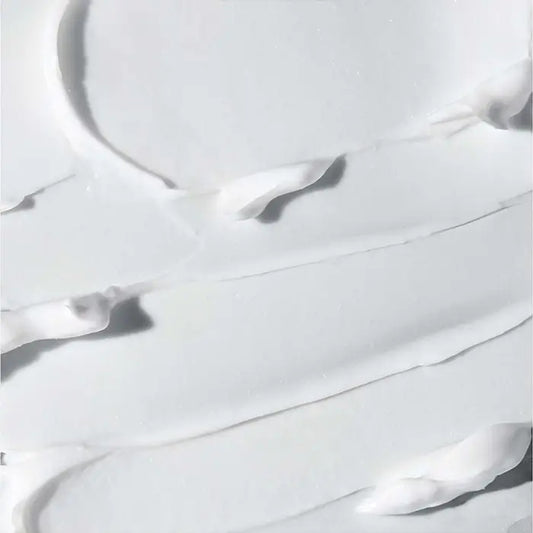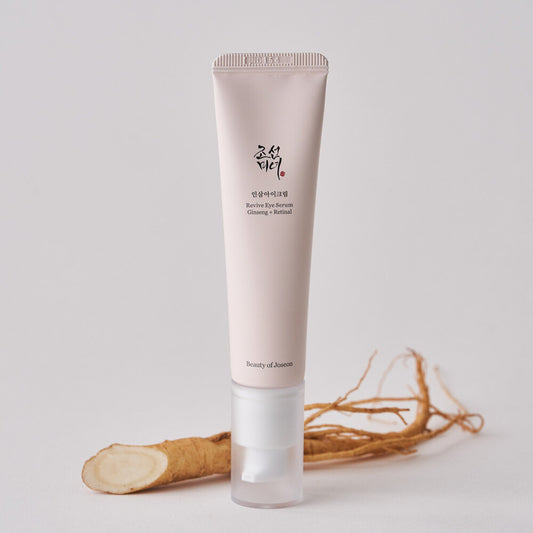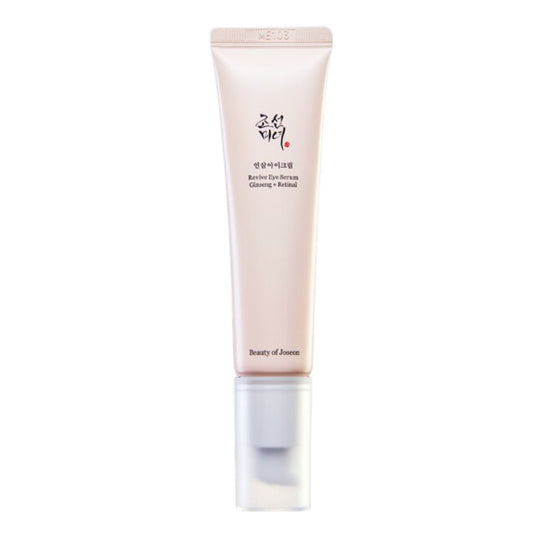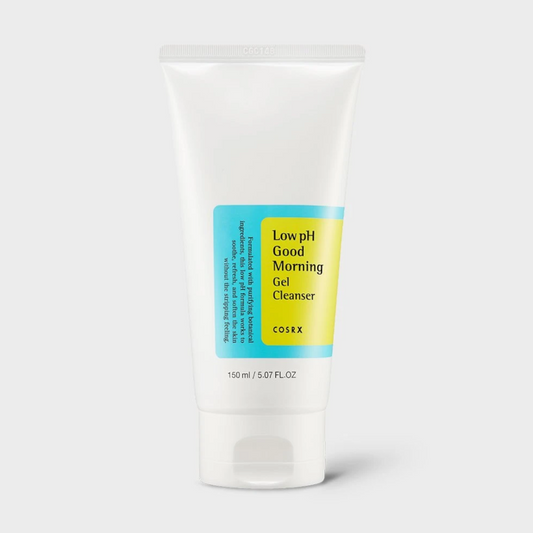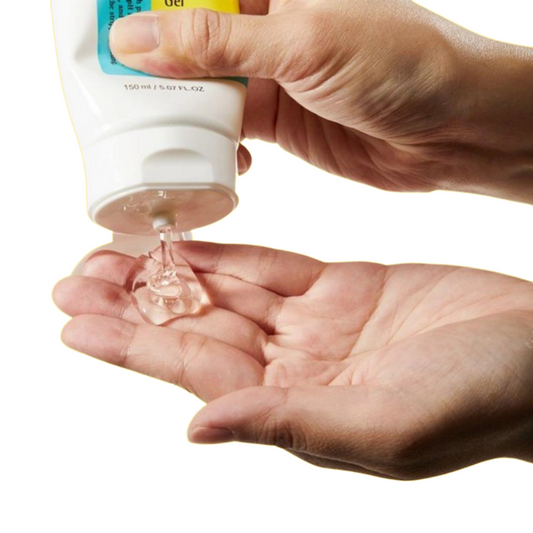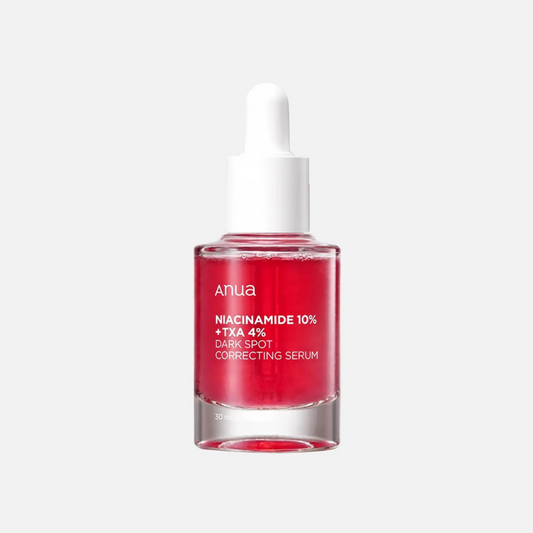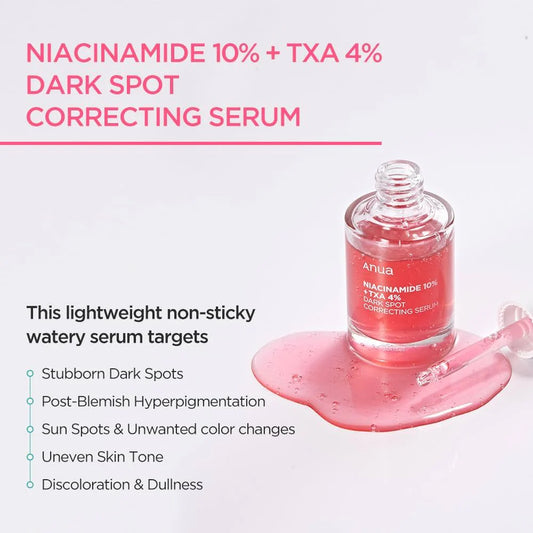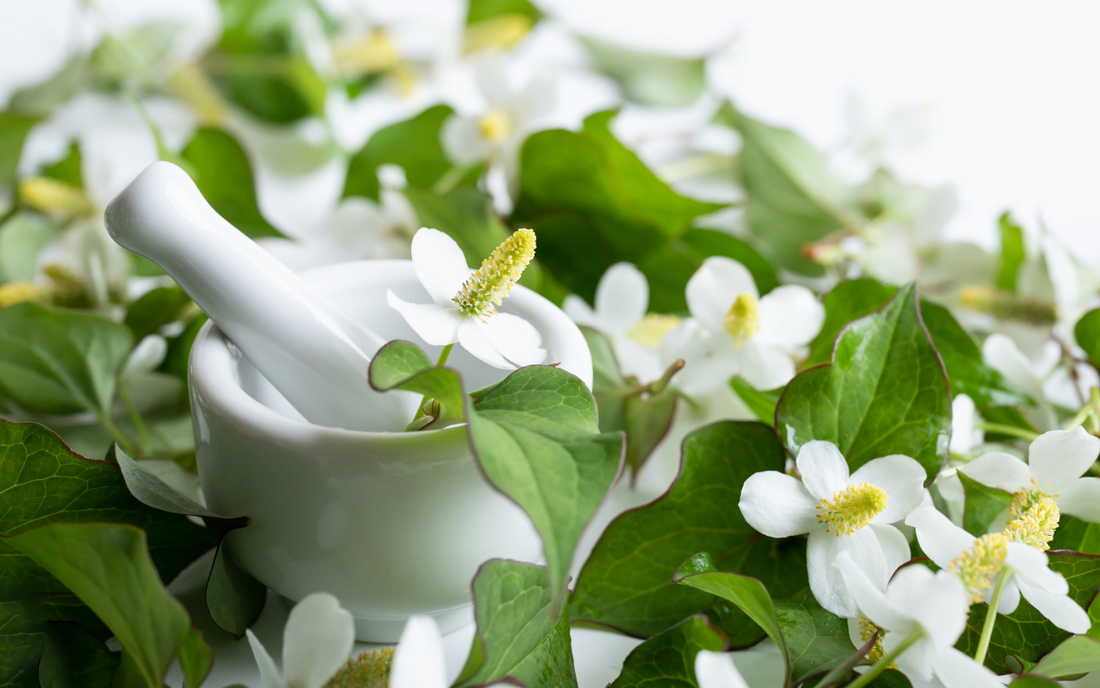
What is Heartleaf? Is it Good for My Skin?
Share
What is Heartleaf?
Heartleaf, scientifically known as Houttuynia cordata, is a distinctive plant that has emerged as one of K-beauty's most celebrated ingredients. Named for its characteristic heart-shaped leaves, this versatile plant is also known by various names including fish mint, fish leaf, rainbow plant, chameleon plant, fish wort, or Chinese lizard tail. The scientific name honors Maarten Houttuyn, a Dutch naturalist, while "cordata" refers to the Latin term for heart-shaped, describing its distinctive foliage. 1 3

Heartleaf has transcended its traditional medicinal roots to become a skincare powerhouse, offering a unique combination of anti-inflammatory, antibacterial, and antioxidant properties that make it particularly effective for modern skin concerns. 2
Medicinal Heritage
Heartleaf boasts an impressive medicinal history spanning centuries across Asian cultures. In traditional Chinese medicine, the aboveground stems and leaves have been used to treat respiratory conditions including pneumonia and lung abscesses. Its therapeutic applications extend across China, Korea, Japan, India, and other Asian regions, with particularly extensive use documented in various Chinese provinces. 2
The plant's medicinal reputation is supported by its rich phytochemical profile, containing volatile oils, flavonoids, organic acids, and alkaloids that contribute to its therapeutic effects.
Culinary Applications
Beyond skincare and medicine, heartleaf holds a special place in Asian cuisine. Its distinctive flavor profile—often described as a unique blend of citrus, mint, and fish—adds complexity to various dishes. It can be enjoyed fresh in salads, incorporated into stir-fries, or used to enhance soups and broths. Many cultures also ferment or pickle heartleaf to develop more complex, tangy flavors.

Heartleaf Skin Benefits
Today, heartleaf has emerged as a star ingredient in the world of K-Beauty, prized for its soothing, anti-inflammatory, and antibacterial properties.
Heartleaf's remarkable benefits for the skin stem from its rich composition of flavonoids, polyphenols, and polysaccharides. These compounds work together to address a wide range of skin concerns, making it a versatile ingredient for all skin types. 4 5 6 7
1. Powerful Anti-Inflammatory Action
Heartleaf excels at calming inflamed skin through multiple mechanisms:
- Reduces redness and irritation associated with various skin conditions
- Helps manage inflammatory acne and breakouts
- Soothes sensitivity from environmental stressors
- Provides relief for reactive skin types
2. Advanced Acne Management
Clinical studies and traditional use support heartleaf's effectiveness against acne:
- Antibacterial properties: Specifically targets common acne-causing bacteria
- Oil regulation: Helps control excess sebum production without over-drying
- Anti-inflammatory effects: Reduces the inflammation associated with breakouts
- Non-comedogenic: Won't clog pores, making it suitable for acne-prone skin
3. Antioxidant Protection
Rich in antioxidants, heartleaf provides comprehensive environmental protection:
- Shields skin from free radical damage
- Helps prevent premature aging caused by environmental stressors
- Supports skin's natural defense mechanisms
- Contributes to overall skin health and resilience
4. Hydration and Barrier Support
Despite its oil-controlling properties, heartleaf supports skin hydration:
- Helps maintain optimal moisture balance
- Supports skin barrier function
- Provides lightweight hydration suitable for all skin types
- Enhances skin's ability to retain moisture
5. Wound Healing and Recovery
Traditional and modern applications highlight heartleaf's healing properties:
- Supports faster recovery from minor skin irritations
- Aids in the healing of acne lesions
- Promotes healthy skin cell renewal
- Helps restore compromised skin barriers
How Heartleaf Compares to Other Popular Skincare Ingredients
Heartleaf vs. Aloe Vera

- Both offer anti-inflammatory and soothing properties
- Provide gentle, non-irritating skincare benefits
- Suitable for sensitive skin types
- Have historical medicinal uses
| Aspect | Heartleaf (Houttuynia Cordata) | Aloe Vera |
|---|---|---|
| Primary Strength | Antibacterial + Oil Control |
Deep Hydration + Wound Healing |
| Best For | Acne-prone, oily, inflamed skin | Dry, damaged, sun-damaged skin |
| Texture | Lightweight, fast-absorbing |
Gel-like, intensely hydrating |
| Antioxidant Power | High flavonoid content |
Moderate antioxidant activity |
| Hydration Level | Balanced, non-greasy |
Intense, deeply moisturizing |
| Acne Benefits | Strong antibacterial action |
Minimal antibacterial effects |
Which one is for my skin?
When to Choose Heartleaf: Opt for heartleaf if you have oily, acne-prone skin or need strong anti-inflammatory effects without heavy hydration.
When to Choose Aloe Vera: Choose aloe vera for dry, damaged, or sun-exposed skin that needs intense hydration and healing support.
Heartleaf vs. Mugwort (Artemisia)

Similarities 10
- Both are traditional Asian medicinal plants
- Offer anti-inflammatory and antibacterial properties
- Effective for sensitive and acne-prone skin
- Provide antioxidant benefits
Key Differences 10
| Aspect | Heartleaf | Mugwort |
|---|---|---|
| Anti-inflammatory Potency | Strong, targeted action | Gentle, broad-spectrum |
| Antibacterial Effects | Highly effective against acne bacteria | Moderate antibacterial activity |
| Skin Type Focus | Oily, acne-prone skin | All skin types, especially sensitive |
| Texture in Products | Clean, lightweight feel | Rich, nourishing texture |
| Primary Use | Active treatment for problematic skin | Preventive care and maintenance |
| Irritation Potential | Very low | Extremely low |
Which one is for my skin?
When to Choose Heartleaf: Select heartleaf for active acne treatment, oil control, and when you need stronger antibacterial effects.
When to Choose Mugwort: Choose mugwort for gentle, daily soothing care, extremely sensitive skin, or as a preventive anti-inflammatory treatment.
Conclusion
Heartleaf represents a perfect intersection of traditional wisdom and modern skincare science. Its unique combination of anti-inflammatory, antibacterial, and antioxidant properties makes it particularly valuable for contemporary skin concerns like acne, sensitivity, and environmental damage.
Unlike aloe vera's focus on intense hydration and healing, or mugwort's gentle, all-purpose soothing effects, heartleaf offers targeted treatment for problematic skin while maintaining gentleness suitable for daily use. This makes it an excellent choice for those seeking effective, natural solutions for oily, acne-prone, or inflamed skin.
As with any skincare ingredient, the key to success lies in consistent use, proper product selection, and integration into a well-rounded routine. Whether you're dealing with occasional breakouts or persistent skin inflammation, heartleaf's proven benefits and gentle nature make it a valuable addition to modern skincare regimens.
Heatleaf FAQs
1. Can heartleaf help with acne?
Yes, heartleaf is highly regarded for its acne-fighting benefits. It contains compounds like flavonoids, which have been shown to have antibacterial effects against acne-causing bacteria. It also helps to control excess oil production and reduce the inflammation associated with breakouts, leading to a calmer and clearer complexion. 5
2. Is heartleaf good for dry skin?
Yes. While it's great for oily and acne-prone skin, heartleaf is also beneficial for dry skin. Its hydrating properties help to attract and retain moisture, soothing any dryness and strengthening the skin barrier. 6
3. Is it safe to use heartleaf every day?
Yes, heartleaf is generally considered gentle and safe for daily use, both morning and night. Its non-irritating nature makes it suitable for regular application, even for those with sensitive skin.
4. How is heartleaf different from Centella Asiatica (Cica)?
Both heartleaf and Centella Asiatica are popular K-beauty ingredients known for their soothing properties. While they share some similarities, heartleaf is often praised for its strong anti-inflammatory and oil-regulating effects, making it a go-to for acne and redness. Centella Asiatica is well-known for its ability to speed up skin healing and repair damaged skin barriers.
Sources:
- Houttuynia cordata, https://en.wikipedia.org/wiki/Houttuynia_cordata
- Houttuynia cordata Thunb: An Ethnopharmacological Review, https://www.frontiersin.org/journals/pharmacology/articles/10.3389/fphar.2021.714694/full
- Houttuynia cordata, https://plants.ces.ncsu.edu/plants/houttuynia-cordata/
- Pharmacological Effects of Houttuynia cordata Thunb (H. cordata): A Comprehensive Review, https://www.ncbi.nlm.nih.gov/pmc/articles/PMC9501394/
- Anti-Aging, Anti-Acne, and Cytotoxic Activities of Houttuynia cordata Extracts and Phytochemicals Analysis by LC-MS/MS, https://www.mdpi.com/2079-9284/9/6/136
- Unveiling Heartleaf Extract: A Skincare Secret Revealed, https://www.clinikally.com/blogs/news/unveiling-heartleaf-extract-a-skincare-secret-revealed
- Houttuynia cordata, https://www.sciencedirect.com/topics/pharmacology-toxicology-and-pharmaceutical-science/houttuynia-cordata
- 10 Benefits of Using Aloe Vera on Your Face, https://www.healthline.com/health/beauty-skin-care/aloe-vera-for-face
- Everything About Aloe Vera, https://www.webmd.com/diet/supplement-guide-aloe-vera
- Mugwort Benefits for Skin: It's Not Just for Magic Potions!, https://www.admiremyskin.com/blogs/learn-to-glow/mugwort-benefits-for-skin-it-s-not-just-for-magic-potions
